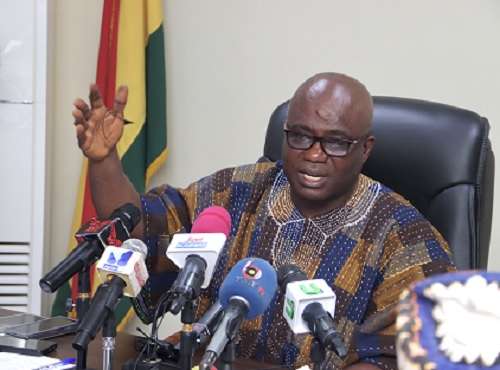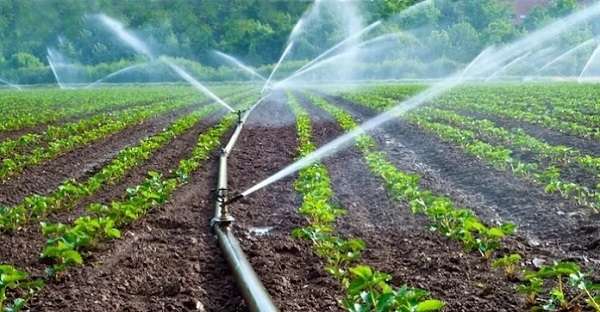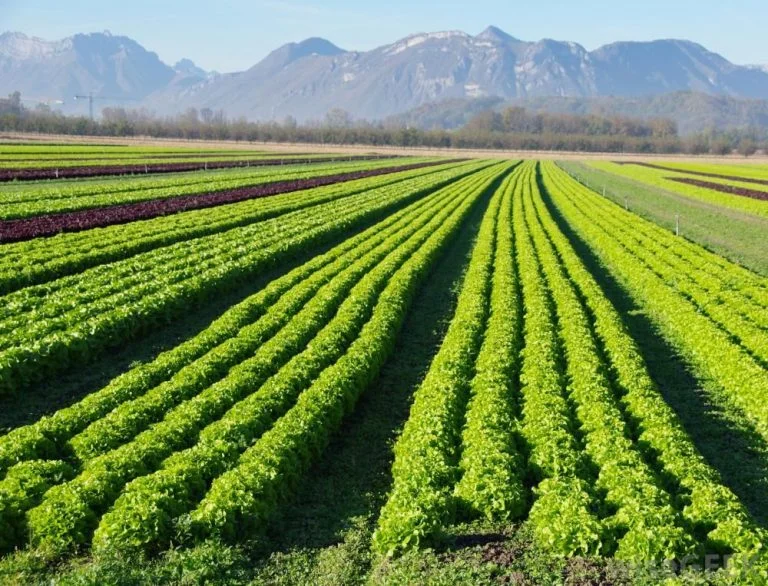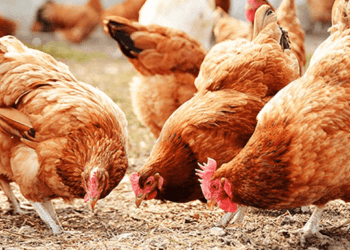The agricultural sector in Ghana plays a vital role in the country’s economy, providing livelihoods for a significant portion of the population.
However, the sector faces numerous challenges, from the adverse effects of climate change to inefficient infrastructure and an over-reliance on food imports. To this effect, the government has rolled out an irrigation for Wealth Creation Strategy to embark on 24-hour Food Production in Ghana. An initiative that targets the provision of irrigation infrastructure in Volta, Oti, Central, North East, Northern, Savannah, Upper West, and Upper East regions severely affected by climate change.
Speaking with Vaultz News, Dr. Charles Nyaaba, former Executive Director of the Peasant Farmers Association of Ghana (PFAG), discussed the possibilities and expectations of this Irrigation for Wealth Creation Strategy. The initiative, as part of the government’s broader 24-hour economy policy, aims to increase food production and create employment opportunities in the agricultural sector.
Dr. Nyaaba highlighted the impact of climate change on farming, the challenges surrounding food importation, and ways to build a more resilient agricultural value chain in Ghana.
According to him, these regions are crucial food-producing zones, yet they are grappling with increasingly erratic rainfall patterns and droughts, which have devastating consequences for farmers. Reflecting on the severity of climate change’s impact, he stated;
“For the past decade, we have been battling climate change… in the months between June and August 2024, we experienced a long dry spell, leading to over 60% of farmers in those [regions] losing their farmlands to the drought.”
Dr. Charles Nyaaba, Former Executive Director of Peasant Farmers Association of Ghana (PFAG)
He pointed out that several key agricultural zones in the Northern and Upper West regions, such as Yendi, Saboba, Gushiegu, Bunkpurugu among others were severely impacted by this dry spell. These areas, which typically supply a significant portion of the country’s grains, suffered major losses. As such;
“If the government is coming out with an intervention that is making water available for farmers to be able to grow all year round, it is the way to go. We consistently mention that you cannot modernize agriculture without irrigation.”
Dr. Charles Nyaaba, Former Executive Director of Peasant Farmers Association of Ghana (PFAG)

Dr. Nyaaba emphasized that irrigation is essential for modernizing agriculture, especially since relying solely on rain-fed agriculture limits growth. He urged the government to learn from past irrigation failures, highlighting the importance of proper consultation and effective infrastructure.
Food Importation
Beyond irrigation, Dr. Nyaaba delved into Ghana’s food importation challenge, which continues to be a significant burden on the economy. Despite the country’s vast agricultural potential, key food items such as rice and onions are still being imported in large quantities.
“We are a production deficit of about 56% when it comes to rice, which is usually supplemented by importation.”
Dr. Charles Nyaaba, Former Executive Director of Peasant Farmers Association of Ghana (PFAG)
He also pointed out the issue of onions, with Ghana spending around 2 million US dollars each week importing the commodity from neighboring countries such as Nigeria, Niger, Burkina and Mali. This reliance on imports, despite having the capacity to produce these items locally, is a matter of concern. He identified several factors that contribute to this ongoing food importation crisis.
“You cannot modernize agriculture by using manual farm tools like hoes and cutlasses. Farmers’ access to mechanization is still a challenge.”
Dr. Charles Nyaaba, Former Executive Director of Peasant Farmers Association of Ghana (PFAG)
Additionally, he pointed out the lack of access to high-yield, climate-resilient crop varieties as another critical barrier.

Dr. Nyaaba emphasized that many countries invest significantly in agricultural research and development, while Ghana’s investment in this area is less than 1% of the agriculture budget. He believes that addressing these gaps could significantly boost local food production.
“We need to begin to use smart climate approaches, which include early-maturing and drought-resistant plant varieties.”
Dr. Charles Nyaaba, Former Executive Director of Peasant Farmers Association of Ghana (PFAG)
Post-Harvest Losses
Meanwhile, a critical issue in Ghana’s agricultural sector is post-harvest losses, which, according to him, remain unacceptably high. These losses are primarily caused by poor infrastructure, inadequate transport systems, and the lack of value-addition processes.
“To address post-harvest losses, we need to improve rural infrastructure… getting the produce from the farm gate to the nearest market is a challenge.”
Dr. Charles Nyaaba, Former Executive Director of Peasant Farmers Association of Ghana (PFAG)

He emphasized that transport systems also need to be upgraded, as current methods, such as the use of ordinary trucks, are inadequate for transporting perishable goods. He further highlighted that many farmers face significant financial challenges, as they are often forced to sell their produce at unfair prices to middlemen. These middlemen, who control the market, profit from the farmers’ hard work, while the farmers receive minimal compensation.
Dr. Nyaaba cited a case from 2008 during President Kufuor’s regime, where poor infrastructure and a lack of market access led to a collapse of the local tomato production sector.
“Farmers [were] encouraged to produce tomatoes. When the farmers produce, the capacity of the factory could not even consume 5% of the produce. Majority of farmers took loans at the time to produce. Some of them committed Suicide. Others migrated and left the place and up till now, they haven’t returned. It was the beginning of tomato shortage in Ghana.”
Dr. Charles Nyaaba, Former Executive Director of Peasant Farmers Association of Ghana (PFAG)
He advised that the government needs to ensure that when a farmer produces, they get a fair price. Investing in appropriate transport systems and improving storage and value addition would help avoid the exploitation of the farmers by the middlemen who buy at very low prices from the local farmers and then transport the produce to the cities to resell at exorbitant prices.
Dr. Charles Nyaaba’s insights addressed the urgency for a more comprehensive approach to agriculture in Ghana.
By addressing these issues, Ghana can reduce its dependence on food imports and create a more resilient and sustainable agricultural system. Ultimately, as Dr. Nyaaba puts it;
“With investments in irrigation, mechanization, and infrastructure, [making] it possible for farmers to access crop varieties, I am very sure and confident that even with the climatic conditions that we have, we would be able to produce enough of the produce that we import and even have surplus for export.”
Dr. Charles Nyaaba, Former Executive Director of Peasant Farmers Association of Ghana (PFAG)
READ ALSO; Ghana’s Economic Stability: Government Urged to Walk the Talk





















